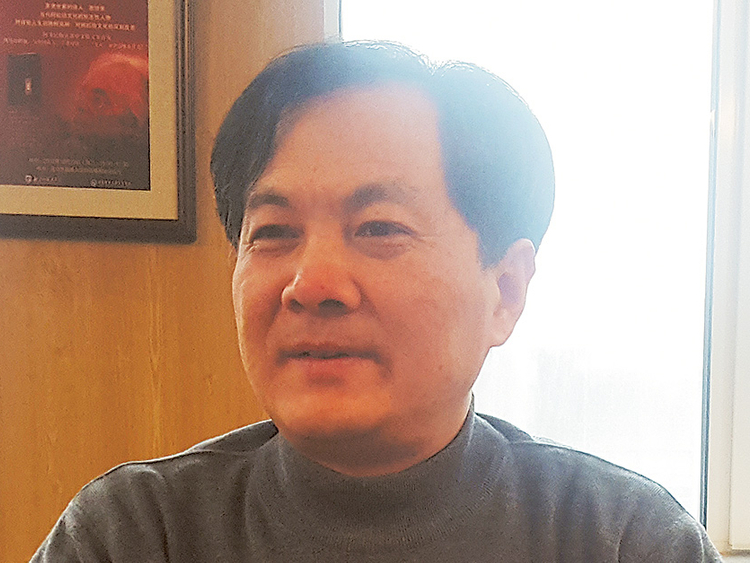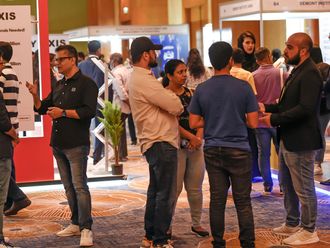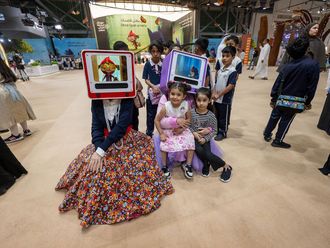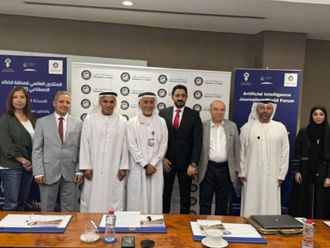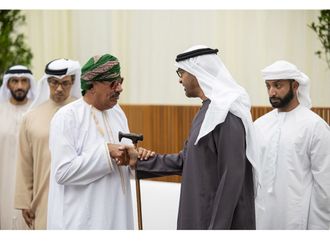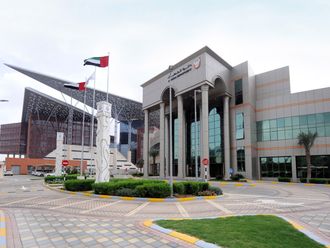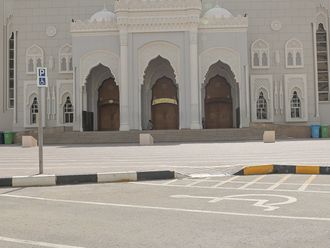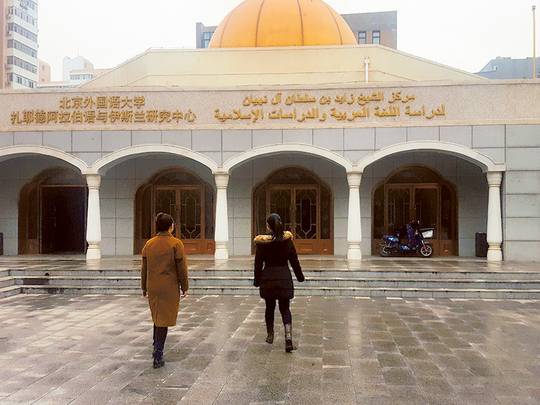
Beijing: There are currently 12 Chinese diplomats in Abu Dhabi who are fluent in Arabic, and nine of them have been educated at a renowned academic wing in Beijing, the Shaikh Zayed Centre for Arabic and Islamic Studies.
Housed within the Beijing Foreign Studies University in a golden domed building, the programme is well known for the expertise and breadth of knowledge about Arabian and Islamic culture that it offers Chinese speakers. Having produced nearly 2,000 graduates since its establishment in 1994, the centre now hopes to deepen its research initiatives, especially those that focus on modern Arabian thought and the Gulf region.
“At a time fraught with tension in which extremists work to create a negative outlook of the Arab world, a programme like ours is essential to dispel myths about Arab culture and allow people to understand and respect it,” Dr Xue Qing Guo, director at the centre, told Gulf News.
“This is why we are also renewing our efforts to translate more literary works. Soon, in fact, we will set about translating important short stories written by Emirati authors,” he added.
Dr Guo was speaking to Gulf News during a visit to the facility in Beijing on January 5. The facility now enrols 250 students, mostly of Chinese origin, with 50 of them pursuing graduate studies and the rest enrolled in the undergraduate programme.
The centre is so known because it was first constructed using a grant provided by the UAE’s founding father, Shaikh Zayed Bin Sultan Al Nahyan. His Highness Shaikh Mohammad Bin Zayed Al Nahyan, Abu Dhabi Crown Prince and Deputy Supreme Commander of the UAE Armed Forces, subsequently visited the department in 2012, and provided further funds to upgrade it. Till date, a total of $1.3 million (Dh4.77 million) has therefore been endowed by the Abu Dhabi leadership to the development of the centre.
The investment has, of course, borne fruit, with the centre’s graduates taking up leading private sector and international relations jobs.
“We would therefore like to translate more works from the Gulf region, including a number of Emirati short stories. At present, we have already finished translating ‘Al Sarab’, a look at the history and objectives of political Islam in Muslim societies by Jamal Al Suwaidi, and it will soon be published,” Dr Guo said.
Prior to the establishment of the centre, the university did have its own Arabic studies programme dating back to 1958. But its importance was highlighted by Shaikh Zayed’s generous grant, and the programme is one of the most well known and respected ones among the 50 Arabic Studies programmes in China today.
Today, the facility is staffed by 16 teachers, of whom 12 are Chinese and two are Syrian. It has produced 100 Arabic Studies textbooks so far, and educated 11 of the Chinese ambassadors serving the Arab world at present.
Why learn Arabic?
Dr Guo is quick to point out that mastering Arabic is not easy for Chinese nationals.
“The languages are vastly different, and come from two entirely different language groups. Chinese is very concise and has very few syllables. In addition, it lacks many of the sounds that Arabic has, such as ‘r’ for instance,” the director explained.
But knowing the language is the key towards connecting the Arab world to China, especially as the two civilisations have long shared and transferred knowledge.
Dr Guo also said that the centre is interested in translating and teaching the poetry of the Gulf region, but that it is much more difficult to translate in comparison to works written in modern standard or classical Arabic.
BOX
Link to the UAE
The contribution of the UAE towards developing the Shaikh Zayed Centre for Arabic and Islamic Studies is clear. Not only is it named after the UAE’s founding father, but the centre also focuses on translating and understanding Emirati culture and achievement. For instance, it has translated to Chinese ‘With United Strength’, an inspiring biography of the late Shaikh Zayed, known to be one of the best leaders of the Arab world.
In addition, one of the most popular Arabic books translated by the centre to Chinese is ‘My Vision’ by His Highness Shaikh Mohammad Bin Rashid Al Maktoum, Vice-President and Prime Minister of the UAE and Ruler of Dubai, with 20,000 copies sold in five years. Excerpts from the Chinese translation were also recently quoted during a public address by Ren Zhengfei, founder of Chinese technology giant, Huawei.
One Emirati student also pursued a doctorate degree at the centre about seven years ago, Dr Dr Xue Qing Guo, director of the centre, remembered fondly.
BOX 2
Why study Arabic?
With the growing trade and diplomatic links between China and the Arab world, more and more Chinese students are drawn to the programme today.
Zhoe Ze, a 24-year-old Master’s student, said she would love to use her knowledge of the Arab world and Islam to become a diplomat.
“To foster a better understanding of the region, I will also head to Dubai next month to see life there for myself,” she said.
Ta Min, another graduate student aged 22, said she was fascinated with Arabic and now hopes to become a teacher herself once she completes her degree.
Pan Wang Fan, on the other hand, has corporate dreams.
“I want to join a defence firm, and knowing Arabic will equip me to excel at a job like this that requires much understanding of foreign cultures,” he said.


